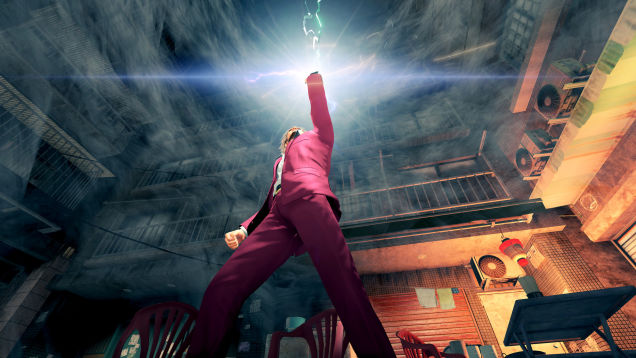The excellent article 7 Git tricks that changed my life inspired me to write about another Git feature that’s had a major impact on my experience using Git on the command line: aliases.Defining Git aliases to serve as substitutes for commands provides two major benefits:read more
Source: LXer – 8 Git aliases that make me more efficient
Monthly Archives: November 2020
Engineers Are Building Huge Salt Caves To Store Huge Amounts of Hydrogen
An anonymous reader quotes a report from Popular Mechanics: Scientists are going back to the salt mines, literally, to find a revolutionary new way to store large quantities of hydrogen for energy. Proponents say this could be a step toward unlocking hydrogen for renewables — something that could change the energy landscape if it were resolved. “The project would initially have enough energy to power 150,000 households for one year and is scheduled to be operational by 2025,” Fuel Cell Works reports. “It is being managed by Mitsubishi Hitachi Power Systems (MHPS), a maker of gas turbines, and Magnum Development, which owns salt caverns for liquid fuel storage.” This works by basically repurposing existing, enormous caves to store reserves of hydrogen as well as other fuels.
Salt in particular makes a great medium for storing and then continuing to generate green hydrogen. CNBC explains how the caves are used to store and generate hydrogen: “Caverns can be created in salt domes by drilling into the salt dome and injecting the rock with water, which dissolves the salt. The resulting brine is extracted, leaving a large cavity. The next step is storing hydrogen in the cavern. Hydrogen electrolyzers can convert water into hydrogen by using renewable energy from solar and other sources. The hydrogen can then be stored, and reconverted to electricity when needed.” Fuel Cell Works reports that while these caves are in the U.S., the major push for salt cave storage is in Europe.
Read more of this story at Slashdot.
Source: Slashdot – Engineers Are Building Huge Salt Caves To Store Huge Amounts of Hydrogen
Sega will test fans' knowledge as part of its 60th anniversary
Sega is giving you a chance to prove just how big of a fan you are. The video game developer is holding an exam on everything Sega next year as part of its 60th anniversary celebration. Dubbed the “Sega Test,” the exam will have 60 multiple choice qu…
Source: Engadget – Sega will test fans’ knowledge as part of its 60th anniversary
Collabora Office 6.4 Arrives on Mobile and Chromebooks with New Look and Dark Mode
Collabora Productivity informs 9to5Linux today about the general availability of the Collabora Office 6.4 office suite for mobile platforms, including Android, iOS, and Chrome OS.
Source: LXer – Collabora Office 6.4 Arrives on Mobile and Chromebooks with New Look and Dark Mode
Raspberry Pi Foundation Releases Case Fan To Prevent Overheating
The Raspberry Pi Foundation has released a tiny $5 fan combined with a small heatsink for the Raspberry Pi 4. TechCrunch reports: It works with the official case, below the top cover. That accessory should prevent the Raspberry Pi from overheating. According to the foundation, the tiny fan should be enough to prevent throttling. “It draws air in over the USB and Ethernet connectors, passes it over a small finned heatsink attached to the processor, and exhausts it through the SD card slot,” the Raspberry Pi Foundation says. It’s a cheap stopgap solution, but I hope the Foundation will prioritize heat dissipation for the next iteration of the Raspberry Pi.
Read more of this story at Slashdot.
Source: Slashdot – Raspberry Pi Foundation Releases Case Fan To Prevent Overheating
New Nintendo Switch Firmware Actually Adds Useful Features

We can all appreciate general system stability improvements that enhance the user’s experience, but tonight’s Nintendo Switch firmware update actually adds some features to the console, like new ways to manage your screenshots.
Source: Kotaku – New Nintendo Switch Firmware Actually Adds Useful Features
Hilda's First Season 2 Trailer Is All About Longing for Freedom and Adventure

After discovering all of the magic and mystery lurking in her new home of Trolberg in Hilda’s first season, the titular young adventurer is back for more. A new look at season two promises an all-too-relatable story about Hilda’s deep need to get back outside.
Source: io9 – Hilda’s First Season 2 Trailer Is All About Longing for Freedom and Adventure
The Xbox Series X Can Run…PS2 Games?

What a world we live in, when Microsoft’s next-gen console has better PlayStation backwards compatibility than the PlayStation 5.
Source: Kotaku – The Xbox Series X Can Run…PS2 Games?
Dr. Scott Atlas Resigns From Trump White House

After a three month stint on the White House’s coronavirus task force during which he advocated for “herd immunity,” lambasted mask-wearing and generally acted like a contrarian, ant-science douche, Dr. Scott Atlas tendered his resignation on Monday night.
Source: Gizmodo – Dr. Scott Atlas Resigns From Trump White House
Apple Hires Former Venture Capitalist Josh Elman For App Store Discovery Role
As part of Apple’s ongoing efforts to improve app discovery, the company has hired former venture capitalist Josh Elman for a related role on the App Store. AppleInsider reports: In a statement Monday, Elman said he would be joining Apple to “help customers discover the best apps for them.” He added that he was excited to “build ways to help over a billion customers and millions of developers connect.” As part of the transition to the new role at Apple, Elman said he would be stepping back from some of his active boards and investments — including Discord and Medium.
Elman was previously a venture capitalist at Greylock Partners and led early investments in Discord and the precursor to TikTok. Until 2019, he was also the vice president of product at Robinhood. Elman’s experience identifying and investing in apps that later became hits could help Apple in its app and software promotion endeavors. According to Bloomberg, the former venture capitalist could also help smooth over the relationship between Apple and developers.
Read more of this story at Slashdot.
Source: Slashdot – Apple Hires Former Venture Capitalist Josh Elman For App Store Discovery Role
How To Enable Timestamp For History Command In Fish Shell In Linux
Today we will see how to enable timestamp for history command in Fish shell in Linux. In addition, we will also learn how to create a simple function to show the date and time stamps in history command output in fish shell.
Source: LXer – How To Enable Timestamp For History Command In Fish Shell In Linux
Yakuza: Like A Dragon Patch Adds Major Feature I Didn't Even Know Was Missing

Unbeknownst to me, Yakuza: Like a Dragon somehow left Japan bereft of one key feature: in-battle weakness indicators. But today, almost three weeks after its Western launch, a patch has added this game-changing mechanic to the wacky gangster RPG.
Source: Kotaku – Yakuza: Like A Dragon Patch Adds Major Feature I Didn’t Even Know Was Missing
Mars’ underground brine could be a good source of oxygen

Enlarge / The Pathfinder rover took this photo. It didn’t need oxygen, unlike the weak, fleshy humans that would like to follow its path. (credit: NASA)
If humans are ever going to visit Mars, they may well need to make some crucial resources while they are there in order to survive long enough to explore and restock for the long return journey. Although the days of flowing surface water are long gone, the red planet is not entirely without the raw ingredients to make this work.
The Mars 2020 mission that launched in July is carrying an experiment with exactly this goal in mind. MOXIE—the Mars Oxygen In-Situ Resource Utilization Experiment—is a box not much bigger than a toaster that produces oxygen from atmospheric CO2. While a much larger version would be required to make liquid-oxygen fuel for a rocket, MOXIE is sized to produce about the amount of oxygen an active person needs to breathe.
A new study led by Pralay Gayen at Washington University in St. Louis, Missouri, tests a device that could tap a different resource—perchlorate brine believed to exist in the Martian ground at some locations. The device can split the water in that brine, producing pure oxygen and hydrogen.
Read 5 remaining paragraphs | Comments
Source: Ars Technica – Mars’ underground brine could be a good source of oxygen
The Mandalorian Has Raised Some New Questions About Its Star Wars Timeline

When The Mandalorian brazenly introduced a certain former Jedi apprentice this past week, the show connected to the larger Star Wars universe in its biggest way yet. Ahsoka Tano isn’t just “The Jedi” who would help Din Djarin complete his quest with the Child, she’s a Jedi who knows way more than he, or anyone else,…
Source: io9 – The Mandalorian Has Raised Some New Questions About Its Star Wars Timeline
Disney Digitally Removes The Mandalorian's Accidental Crew Member Cameo
Disney has digitally removed a lone crew member who accidentally appeared in the background of a recent Mandalorian episode. The Verge reports: The crew member, who the internet lovingly dubbed “Jeans Guy,” appeared at the 18:54 mark in season 2, episode 4. Back flat against the wall, the crew member was not in the shot for very long, but they made an impact on Star Wars fans everywhere. People even made mock designs for action figures based on the crew member! You can’t buy that kind of love. The Verge has reached out to Disney about the digital erasure. Upon revisiting the scene, however, the crew member is nowhere to be found, something I was worried would happen. The beauty of digital editing technology is that shows and movies can be worked on in homes around the world at a time when it’s impossible to be in a shared office space. The downside is that accidental gaffes we’ve come to love are erased, lost forever in the digital wavelengths of time.
Read more of this story at Slashdot.
Source: Slashdot – Disney Digitally Removes The Mandalorian’s Accidental Crew Member Cameo
It Looks Like Apple Fitness+ Is Launching Soon

Fitness+ was announced back in September and slated for release before the end of the year. But we’re just weeks away from the start of 2021 and Fitness+ is still nowhere to be found. So what gives?
Source: Gizmodo – It Looks Like Apple Fitness+ Is Launching Soon
Empire Of Sin Is Not Great

Ahhh, I really wanted to like this game. But as hard as it tries, and as much fun as it has with the source material, Empire of Sin is a mess of ideas that just isn’t much fun to be around.
Source: Kotaku – Empire Of Sin Is Not Great
No One Who Got Moderna's Vaccine In Trial Developed Severe COVID-19
An anonymous reader quotes a report from Science Magazine: Continuing the spate of stunning news about COVID-19 vaccines, the biotech company Moderna announced the final results of the 30,000-person efficacy trial for its candidate in a press release today: Only 11 people who received two doses of the vaccine developed COVID-19 symptoms after being infected with the pandemic coronavirus, versus 185 symptomatic cases in a placebo group. That is an efficacy of 94.1%, the company says, far above what many vaccine scientists were expecting just a few weeks ago.
More impressive still, Moderna’s candidate had 100% efficacy against severe disease. There were zero such COVID-19 cases among those vaccinated, but 30 in the placebo group. The company today plans to file a request for emergency use authorization (EUA) for its vaccine with the U.S. Food and Drug Administration (FDA), and is also seeking a similar green light from the European Medicines Agency. The data released today bolster an interim report from the company two weeks ago that only analyzed 95 total cases but produced similarly impressive efficacy. “I would still like to see all of the actual data, but what we’ve seen so far is absolutely remarkable,” says Paul Offit, a vaccine researcher at the Children’s Hospital of Philadelphia who is a member of an independent committee of vaccine experts that advises FDA.
Read more of this story at Slashdot.
Source: Slashdot – No One Who Got Moderna’s Vaccine In Trial Developed Severe COVID-19
Bungie Writer Makes Destiny 2's Queer Romance Official

One of Destiny 2’s writers took to Twitter over the weekend to dispel some players’ confusion and confirm that two of the game’s biggest characters are, in fact, gay and in love.
Source: Kotaku – Bungie Writer Makes Destiny 2’s Queer Romance Official
The Supreme Court will finally rule on controversial US hacking law

Enlarge / Justices Sonia Sotomayor and Neil Gorsuch, back, and Stephen Breyer, right, seemed skeptical of the government’s broad reading of the CFAA. Justice Thomas, center, seemed more sympathetic to the government’s view. Chief Justice Roberts, left, kept his cards close to his chest. (credit: Andrew Harrer/Bloomberg via Getty Images)
The Supreme Court on Monday considered how broadly to interpret the Computer Fraud and Abuse Act, America’s main anti-hacking statute.
Here’s how I described the case back in September:
The case arose after a Georgia police officer named Nathan Van Buren was caught taking a bribe to look up confidential information in a police database. The man paying the bribe had met a woman at a strip club and wanted to confirm that she was not an undercover cop before pursuing a sexual—and presumably commercial—relationship with her.
Unfortunately for Van Buren, the other man was working with the FBI, which arrested Van Buren and charged him with a violation of the CFAA. The CFAA prohibits gaining unauthorized access to a computer system—in other words, hacking—but also prohibits “exceeding authorized access” to obtain data. Prosecutors argued that Van Buren “exceeded authorized access” when he looked up information about the woman from the strip club.
But lawyers for Van Buren disputed that. They argued that his police login credentials authorized him to access any data in the database. Offering confidential information in exchange for a bribe may have been contrary to department policy and state law, they argued, but it didn’t “exceed authorized access” as far as the CFAA goes.
Obviously, no one is going to defend a cop allegedly accepting bribes to reveal confidential government information. But the case matters because the CFAA has been invoked in prosecutions of more sympathetic defendants. For example, prosecutors used the CFAA to prosecute Aaron Swartz for scraping academic papers from the JSTOR database. They also prosecutied a small company that used automated scraping software to purchase and resell blocks of tickets from the TicketMaster website.
Read 22 remaining paragraphs | Comments
Source: Ars Technica – The Supreme Court will finally rule on controversial US hacking law
